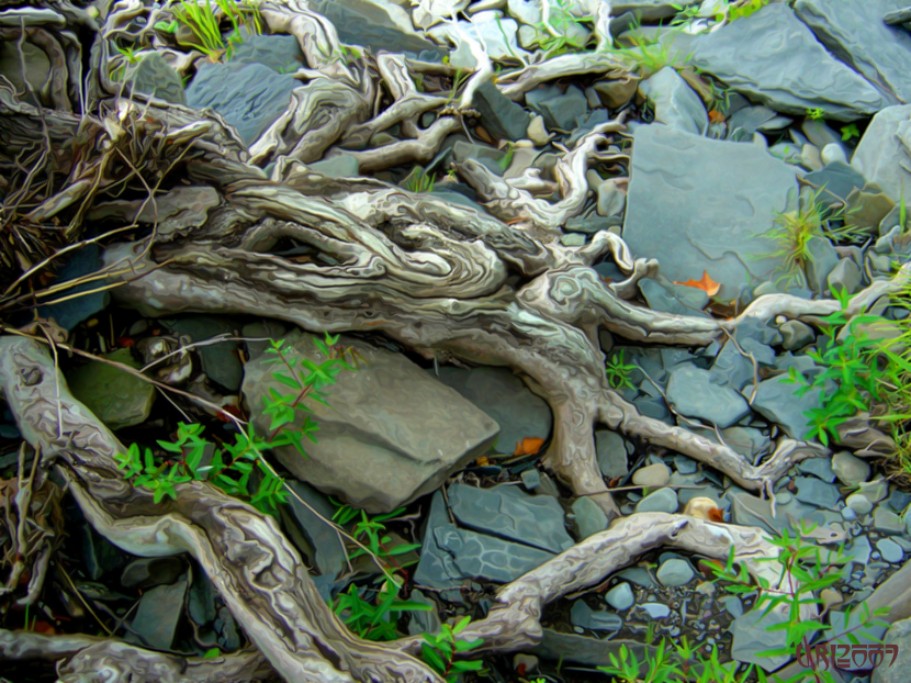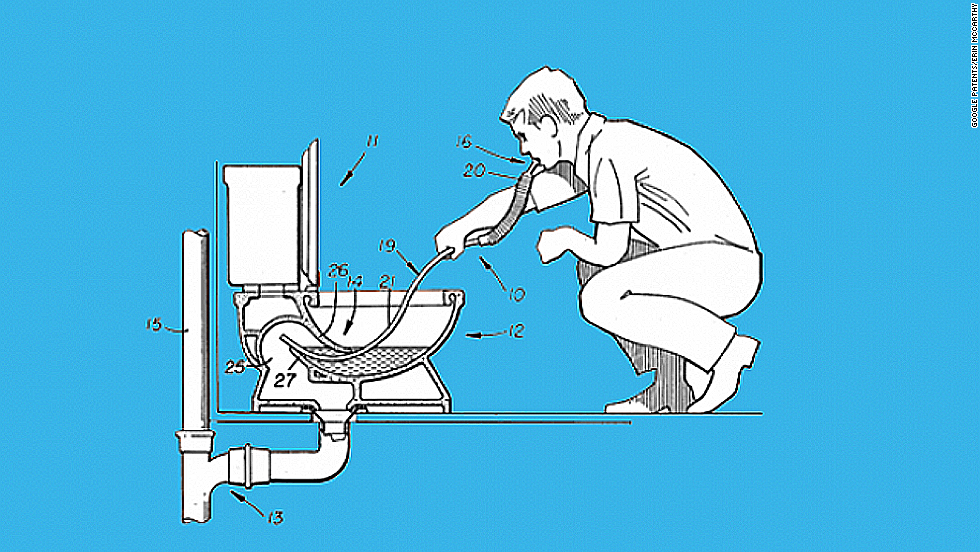
Sartre talks of an afternoon spent in the park, trying (in vain, it would seem) to exist.
This effort to exist is the essence of existential philosophy. So often we try to exist, but we keep getting interrupted - sometimes by internal struggles, and sometimes by external stimuli. Here's what he says about it:
I kept myself from making the slightest movement, but I didn't need to move in order to see, behind the trees, the blue columns and the lamp posts of the bandstand and the Velleda, in the midst of a mountain of laurel. All these objects . . . how can I explain? They inconvenienced me; I would have liked them to exist less strongly, more dryly, in a more abstract way, with more reserve. The chestnut tree pressed itself against my eyes. Green rust covered it half-way up; the bark, black and swollen, looked like boiled leather. The sound of the water in the Mas-queret Fountain sounded in my ears, made a nest there, filled them with signs; my nostrils overflowed with a green, putrid odour. All things, gently, tenderly, were letting themselves drift into existence like those relaxed women who burst out laughing and say: "It's good to laugh," in a wet voice; they were parading, one in front of the other, exchanging abject secrets about their existence. I realized that there was no half-way house between non-existence and this flaunting abundance. If you existed, you had to exist all the way, as far as mouldiness, bloatedness, obscenity were concerned. In another world, circles, bars of music keep their pure and rigid lines. But existence is a deflection. Trees, night-blue pillars, the happy bubbling of a fountain, vital smells, little heat-mists floating in the cold air, a red-haired man digesting on a bench: all this somnolence, all these meals digested together, had its comic side. . . . Comic ... no: it didn't go as far as that, nothing that exists can be comic; it was like a floating analogy, almost entirely elusive, with certain aspects of vaudeville. We were a heap of living creatures, irritated, embarrassed at ourselves, we hadn't the slightest reason to be there, none of us, each one, confused, vaguely alarmed, felt in the way in relation to the others. In the way: it was the only relationship I could establish between these trees, these gates, these stones. In vain I tried to count the chestnut trees, to locate them by their relationship to the Velleda, to compare their height with the height of the plane trees: each of them escaped the relationship in which I tried to enclose it, isolated itself, and overflowed. Of these relations (which I insisted on maintaining in order to delay the crumbling of the human world, measures, quantities, and directions)—I felt myself to be the arbitrator; they no longer had their teeth into things. In the way, the chestnut tree there, opposite me, a little to the left. In the way, the Velleda. . . . And I—soft, weak, obscene, digesting, juggling with dismal thoughts—I, too, was In the way. Fortunately, I didn't feel it, although I realized it, but I was uncomfortable because I was afraid of feeling it (even now I am afraid—afraid that it might catch me behind my head and lift me up like a wave). I dreamed vaguely of killing myself to wipe out at least one of these superfluous lives. But even my death would have been In the way. In the way, my corpse, my blood on these stones, between these plants, at the back of this smiling garden. And the decomposed flesh would have been In the way in the earth which would receive my bones, at last, cleaned, stripped, peeled, proper and clean as teeth, it would have been In the way: I was In the way for eternity.
...
But a little while ago I made an experiment with the absolute or the absurd. This root—there was nothing in relation to which it was absurd. Oh, how can I put it in words? Absurd: in relation to the stones, the tufts of yellow grass, the dry mud, the tree, the sky, the green benches. Absurd, irreducible; nothing—not even a profound, secret upheaval of nature—could explain it. Evidently I did not know everything, I had not seen the seeds sprout, or the tree grow. But faced with this great wrinkled paw, neither ignorance nor knowledge was important: the world of explanations and reasons is not the world of existence. A circle is not absurd, it is clearly explained by the rotation of a straight segment around one of its extremities. But neither does a circle exist. This root, on the other hand, existed in such a way that I could not explain it. Knotty, inert, nameless, it fascinated me, filled my eyes, brought me back unceasingly to its own existence. In vain to repeat: "This is a root"—it didn't work any more. I saw clearly that you could not pass from its function as a root, as a breathing pump, to that, to this hard and compact skin of a sea lion, to this oily, callous, headstrong look. The function explained nothing: it allowed you to understand generally that it was a root, but not that one at all. This root, with its colour, shape, its congealed movement, was . . . below all explanation. Each of its qualities escaped it a little, flowed out of it, half solidified, almost became a thing; each one was In the way in the root and the whole stump now gave me the impression of unwinding itself a little, denying its existence to lose itself in a frenzied excess. I scraped my heel against this black claw: I wanted to peel off some of the bark. For no reason at all, out of defiance, to make the bare pink appear absurd on the tanned leather: to play with the absurdity of the world. But, when I drew my heel back, I saw that the bark was still black. Black? I felt the word deflating, emptied of meaning with extraordinary rapidity. Black? The root was not black, there was no black on this piece of wood—there was . . . something else: black, like the circle, did not exist. I looked at the root: was it more than black or almost black? But I soon stopped questioning myself because I had the feeling of knowing where I was. Yes, I had already scrutinized innumerable objects, with deep uneasiness. I had already tried—vainly—to think something about them: and I had already felt their cold, inert qualities elude me, slip through my fingers.
...
How long will this fascination last? I was the root of the chestnut tree. Or rather I was entirely conscious of its existence.
(Back to me)
So much of life is like this. We struggle. We fight. We look for a modicum of control, wrapping ourselves in the illusion of the familiar in an effort to make sense of the absurdity we call life. What he seems to be advocating for is not the absolute control, but rather the absolute abandonment of the false pursuit of the non-existent control... The realization that life is a series of absolutely absurd events that we are mere spectators to, at best, in spite of our best efforts.
In this, there appears to be a lot of fatalism. I admit this is true. But perhaps the only real choice we have in life is how we come to accept what really exists for the way it exists - or the way we perceive it to exist - without being encumbered by internal or external struggles. We lose our lives, only to find that that's the only real way to live - actually live.
I don't know. I used to have someone I could talk about these kinds of things with. I miss that. A lot.
But that, too, has slipped from my grasp, and I'm left to wonder at the absurdity of it all.

Comments